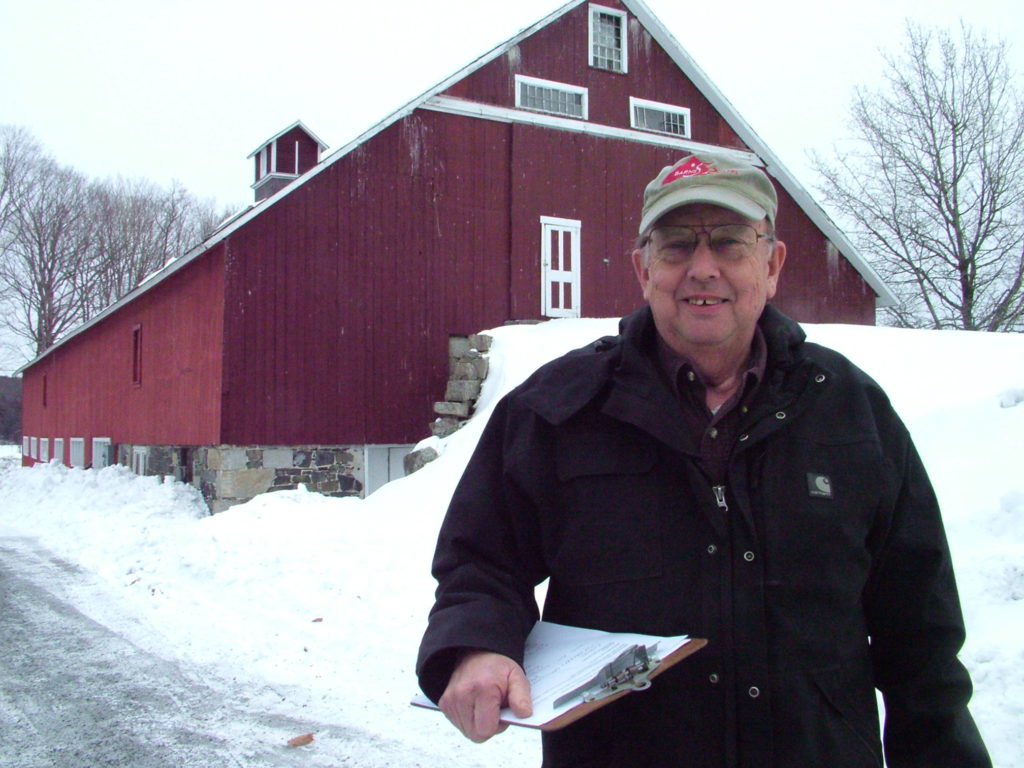Join us for another presentation in support of barn-preservation education
This free lecture will be hosted via Zoom and is open to anyone with an interest in learning more about historic barns!
It will be held Wednesday, September 30th at 6 pm EST and is entitled, “The History of Agriculture as Told by Barns.” See the description below for details.
To register for this event, send an email to RSVP with your name and location (city/county, state) to info@barnalliance.org by Sunday, September 27th. We will send an email with the details to call or login to all registrants on September 29th.
(If you missed our first lecture, be sure to check it out here!)
September 30th: “The History of Agriculture as Told by [New England] Barns”
Presenter: John C. Porter
Keywords: New England Agriculture, Barn Types, Timber-Framing/Historic Construction Methods, NRHP Evaluation and Criterion A
The evolution of barn architecture tells the story of New Hampshire agriculture. Barns changed from the early English style, to Yankee style, to gambrel and then pole barns to accommodate the changing agriculture. This presentation will be a chronological walk through time, with photo illustrations of barns around the state that are examples of these eras of agricultural history.
This lecture is geared towards architects, engineers, preservation contractors, cultural resource professionals who may not be familiar with barns and general barn enthusiasts, everyone can learn from this exploration of historic farm buildings!
John C. Porter was raised on a dairy farm in Lebanon, New Hampshire. He graduated from the University of New Hampshire with a B.S. Degree in Animal Science, and then went on to get a master’s degree from Cornell University in Animal Nutrition and Farm Management. Later he earned a master’s degree from Bob Jones University in Education Administration. He served as a Dairy Specialist for the UNH Cooperative Extension from 1974 until his retirement in 2006. He still works part-time for UNH and operates his own consulting company, Farm Planning Services, LLC.
In 2001, he co-authored the book “Preserving Old Barns”; in December of 2007, was editor and contributing author of “The History and Economics of the New Hampshire Dairy Industry”; and in 2011 wrote the agriculture chapter for the Concord History book, “Crosscurrents of Change”. In 2019 he published a second edition of the Preserving Old Barns book.

